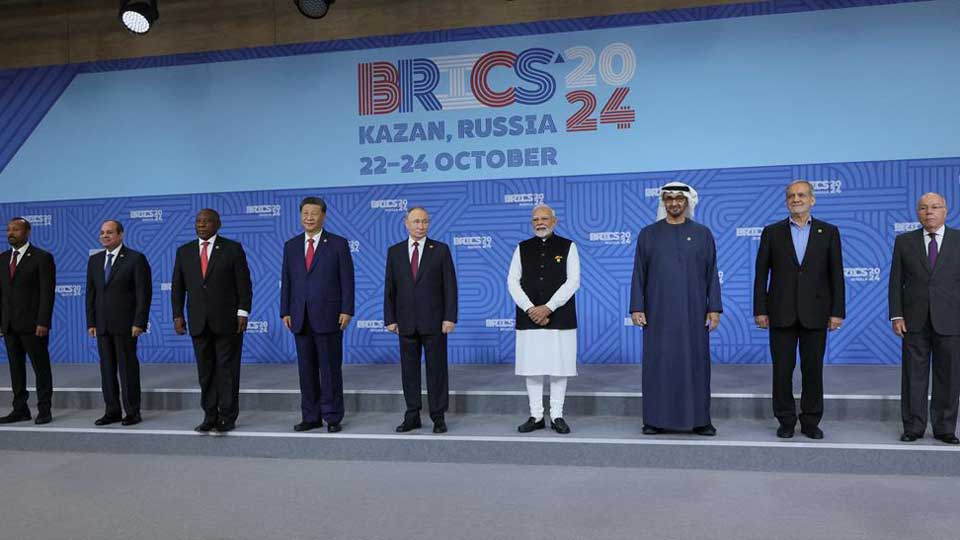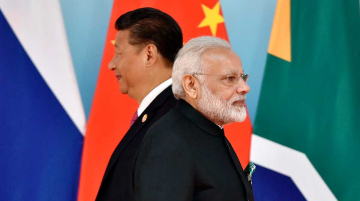
By Giulia Sciorati
This week’s BRICS summit in Kazan has represented a key opportunity for Beijing to strengthen its leadership within the group and solidify its status as both a regional and global power. For China, BRICS serves primarily as a platform to promote its vision of a multipolar world order and enhance its influence among emerging economies and developing nations.
The recent expansion of BRICS, which added Iran, Ethiopia, Egypt, and the UAE in 2024, is a step towards realizing China’s goal of building a coalition of states capable of challenging Western hegemony. The numbers seem to support this ambition: BRICS now represents 45% of the world’s population and a combined GDP (PPP) that exceeds that of the G7.
While BRICS, on paper, aligns well with China’s agenda, Beijing is aware of ongoing tensions within the group that could undermine its cohesion and slow the achievement of shared objectives. India and Brazil, for example, while active participants in BRICS, do not share the same anti-Western stance as China and Russia. One of China’s biggest challenges is balancing its push for BRICS to distance itself from the West while respecting the more moderate positions of founding members who view BRICS as a platform for reforming the current global order (i.e. working within the system to change it), rather than opposing it directly (that is, offering an alternative).
The BRICS stance on sanctions in the recently released Kazan declaration, for instance, highlighting “the disruptive effect of unlawful unilateral coercive measures, including illegal sanctions, on the world economy, international trade, and the achievement of the sustainable development goals” echoes Chinese concerns about Western sanctions as a destructive tool incapable of achieving concrete results.
India’s presence in BRICS also forces China to carefully manage the interaction between their bilateral tensions and the multilateral group’s dynamics. Beijing and New Delhi have a longstanding strategic rivalry, including territorial disputes, and both countries compete for influence in the Global South.
From China’s perspective, maintaining cooperation with India is crucial to BRICS’ success. However, India has expressed concerns about the recent expansion, fearing it could lose influence within the group to China. Despite these tensions, the expansion remains crucial for Beijing, as it strengthens both BRICS’ global relevance and China’s leadership on the world stage.
For Beijing, opposing the global order should be the unifying goal for BRICS. Countries like Indonesia, Algeria, and Turkey have shown interest in joining, attracted by the opportunity to diversify their foreign policy agenda and build closer ties with China and India.
Although China has clearly assumed a leadership role within BRICS, it continues to closely collaborate with Russia, especially in their joint aim of countering Western, and particularly U.S., unipolar dominance. While this partnership is generally seen as beneficial, Beijing is careful not to overstep and monopolize the group’s objectives, aware that members like India, Brazil, and even Russia might view an increase in Chinese influence with suspicion. Russia and India, in particular, have shown the ability to collaborate in resisting China’s dominance in other multilateral settings such as the Shanghai Cooperation Organisation.
In summary, the BRICS summit in Kazan has offered China a valuable opportunity to guide the group’s recent expansion and shape it into a more influential global force. However, Beijing must manage the internal competition and differing priorities of other founding members to ensure the group’s long-term cohesion.
Similar points were raised in a recent publication for ISPI (Istituto per gli Studi di Politica Internazionale) in Italian. Giulia Sciorati is a LSE Fellow in China and the Global South.








